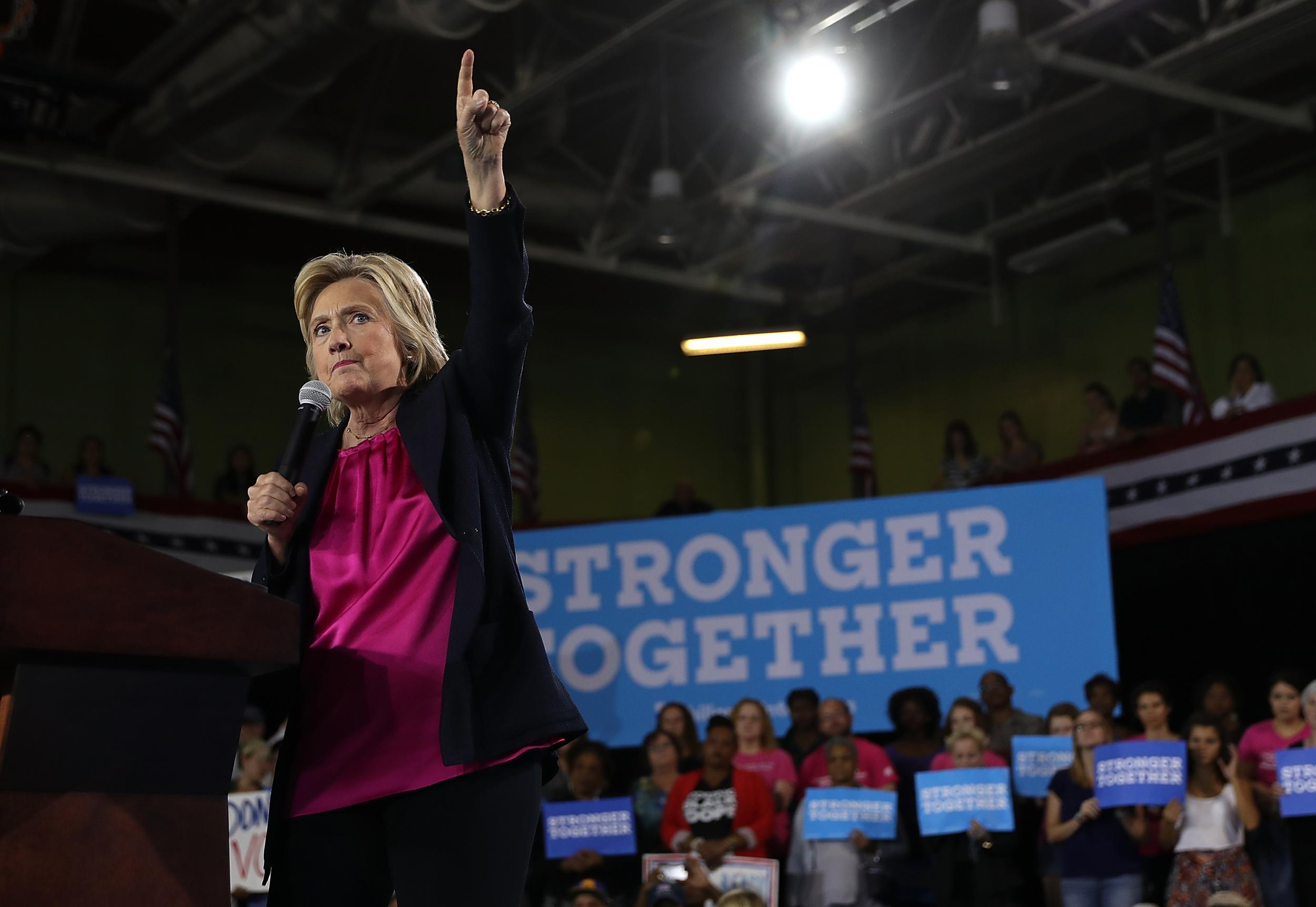Hillary Clinton's health scare isn't likely to change the outcome of the US election
Despite evidence that her unpopularity has risen to almost Trumpian levels, Clinton is positioned to enjoy a lot of in-built electoral advantages

The health scare over Hillary Clinton injects fresh uncertainty into what is already the most unconventional and unpredictable of American elections.
Pneumonia, with which she has been diagnosed and which has forced her to cancel a two-day campaign swing to California, can of course be mild. As far as can be judged, moreover, her illness is minor compared to those afflicting at least two previous presidential candidates: John F Kennedy, who suffered from a variety of serious conditions when he ran in 1960, and Franklin D Roosevelt, who was in effect a dying man when he won a fourth term in 1944.
Nonetheless, given a previous medical history that includes at least two episodes of deep vein thrombosis and a 2012 concussion, the episode is bound to kindle legitimate concerns, while adding a veneer of credibility to the dark insinuations about her health long emanating from the Donald Trump campaign.
In broader political terms, this setback has come at a bad moment for Ms Clinton, when her lead over Mr Trump is shrinking, and she is struggling to make amends for her ill-judged outburst last week at a fundraiser when she declared that half of her opponent’s supporters were “a basket of deplorables”. Her words recalled Republican Mitt Romney’s famous “47 per cent” gaffe at a similar event four years before, when he wrote off almost half of American voters as spongers and idlers who would automatically vote Democrat. As Mr Romney himself later admitted, that misstep may have cost him the 2012 election.
Most damaging of all perhaps is the manner in which the pneumonia diagnosis emerged, reinforcing the impression – created by the email affair among others – that Ms Clinton is congenitally addicted to secrecy. For 90 minutes after the “overheating” incident at Sunday’s 9/11 memorial service, reporters were told precisely nothing. Had not matters been forced by her near-collapse, American voters might never have learned about the pneumonia, which had been diagnosed 48 hours earlier.
All of which only lends support to the argument that presidential candidates should release their full medical records. Even for ordinary mortals who do not seek the White House, one’s sixties are the decade when, as Donald Rumsfeld might put it, stuff tends to happen. Ms Clinton and Mr Trump, however, are not preparing for an agreeable retirement: they are enduring a brutally gruelling campaign, while the job they aspire to is arguably the most stressful on earth.
Obscured by their campaigns’ many peculiarities has been the fact that both are among the oldest general election candidates in US history. Ms Clinton is 68. If she wins on 8 November, she would be the second oldest president to take office, after Ronald Reagan. Mr Trump, who is 70, would be the oldest.
From this perspective, the records both have released so far have been almost insultingly inadequate. The Republican candidate has provided merely a note dashed off by a doctor in a couple of minutes as a Trump limousine waited on the street below, proclaiming he would be “the healthiest individual ever elected to the presidency”. Mr Trump now promises to release the results of a physical he is having this week. Ms Clinton’s record is slightly better but, as the weekend’s events have shown, far from sufficient.
Assuming Ms Clinton’s pneumonia is nothing that a course of antibiotics and a little rest will not put right, its impact on the campaign may be limited. Despite evidence that her unpopularity has risen to almost Trumpian levels, and despite recent polls showing her lead shrinking both nationally and in the swing states that will decide the election, she is still the favourite to win. Demographics and the make-up of the electoral college now offer any Democrat a notable inbuilt advantage, while controversy old or new could engulf Mr Trump at any moment. But Ms Clinton’s margin of error was already shrinking before the weekend. The health scare, and her campaign’s mishandling of it, reduces that margin further.

Join our commenting forum
Join thought-provoking conversations, follow other Independent readers and see their replies